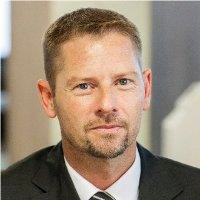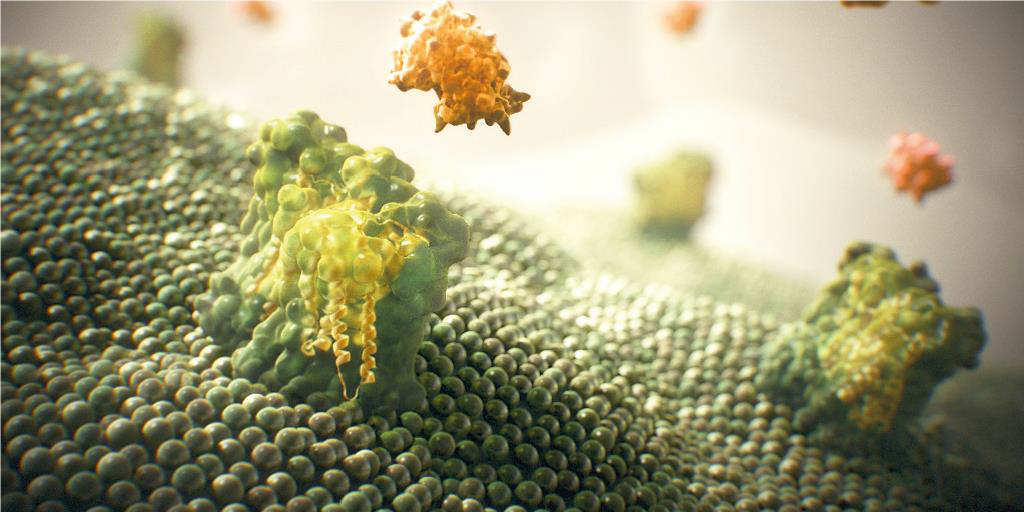Janssen EMEA > World Cancer Day 2018
Despite the incredible work of the oncology community, cancer still causes a significant burden across Europe– with one in five deaths in the region attributed to this complex epidemic.1
On World Cancer Day, a global initiative recognised annually on 4 February, Cathy Taylor, an oncologist, and Ivo-Winiger-Candolfi, an oncology surgeon, both of whom are European Therapy Area leads for Oncology at Janssen, explain the unique approach Janssen are taking to tackle cancer head on.


One of the ways Janssen is doing this is by focusing scientific research on cancer interception. “Just as you can use a switch to light up a room, so too can you disrupt the electrical power source, preventing any light from radiating out of the bulbs,” Dr Taylor explains. “With cancer interception, we are trying to do just this, by detecting what causes malignancies in cancer cells, before they invade the body. Once we have a robust understanding of these cancers and how they take hold, we can deliver the right diagnostics and therapeutics to intervene, or ‘switch off’ the carcinogenic process, avoiding the proliferation of suspicious cells.”
The goal is to identify and treat patients earlier and earlier in their cancer journey, when they are healthier and less resistant to standard therapeutic interventions. “This is the moment where we have the best chance of reducing the likelihood of death - ultimately by stopping the cancer in its tracks,” says Dr. Winiger-Candolfi.
These research efforts are providing promising results in multiple myeloma, an incurable form of blood cancer. In the precursor stage to multiple myeloma, known as smouldering multiple myeloma (SMM), early intervention to delay or prevent the progression to active disease could markedly alter the outcome for patients. “We know that around 10% of SMM patients progress to active myeloma every year in the first five years, though higher-risk SMM patients can progress much sooner,2” Dr. Taylor notes. Proactively targeting these asymptomatic patients, as opposed to the current standard of care in SMM, which is observation, could prevent progression to active disease.
 “But in cancer, we know one size doesn’t fit all. With more than 200 cancers, we understand we can’t be experts or have a great impact in all. Instead, our strategy is to take a laser-focused approach, concentrating our knowledge and deep expertise in seeking curative regimens and delivering transformational therapeutic solutions for specific tumour types, which include three disease area strongholds: haematological malignancies, prostate cancer and lung cancer.”
“But in cancer, we know one size doesn’t fit all. With more than 200 cancers, we understand we can’t be experts or have a great impact in all. Instead, our strategy is to take a laser-focused approach, concentrating our knowledge and deep expertise in seeking curative regimens and delivering transformational therapeutic solutions for specific tumour types, which include three disease area strongholds: haematological malignancies, prostate cancer and lung cancer.”
Scientific progress requires connecting knowledge and combining resources across all sectors of the cancer community. “In our quest to eradicate cancer, we will go wherever patient needs can best be met,” says Dr. Winiger-Candolfi.
“Our work needs to go beyond the lab for these therapies to make a meaningful difference to patients. Getting our medicines to the patients who can benefit from them is both our responsibility and our reason for being.”
Janssen approaches market access with the same innovative mindset that permeates their research and development – with an openness to new perspectives and collaborations that ensures clinicians and patients will be provided with transformational cancer solutions with demonstrated benefits. The approach is holistic, focused on establishing and capturing value throughout the product lifecycle. Cross-functional teams work to establish what payers value and understand the kind of data needed to gain reimbursement, so that clinical trials are designed with this in mind, from the outset.
“Our alliances and approaches may take several forms, but our goal is always the same: a future without disease,” Dr. Taylor says. “With a persistent commitment to patients, together, we can overcome cancer.” For more information about Janssen in this therapeutic area please go to our oncology section.
For more information about Janssen in this therapeutic area please go to our oncology section.
REFERENCES
1. World Health Organisation. Cancer Data and Statistics. Available at: http://www.euro.who.int/en/health-topics/noncommunicable-diseases/cancer/data-and-statistics Last accessed: January 2018.
2. Rajkumar, S. V. Preventive strategies in monoclonal gammopathy of undetermined significance and smoldering multiple myeloma. Am. J. Hematol.,2012: 87: 453–454. doi:10.1002/ajh.23204 Last accessed: January 2018


